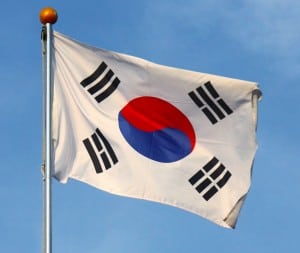 South Korea and Corruption- A Renewed Focus On Corporate Compliance
South Korea and Corruption- A Renewed Focus On Corporate Compliance
Currently, Park Guen Hye’s administration is caught up in a potential bribery scandal involving alleged pay outs to several of President Park’s top aides as well as other politicians connected with the ruling party. Fed up with corruption scandals, Korea has finally taken action, unlike some countries in Asia or the OECD by passing new laws that will crack down on bribery and corruption. In fact, the Korean National Assembly recently passed the Act on the Prevention of Improper Solicitation and Receipt of Money and Goods, more commonly known as the “Kim Young-Ran Act” to fight corruption.
Many expect that the Act will usher in a new era in South Korea’s longstanding fight against corruption and bribery; others, however, remain skeptical and are questioning the legality of this new law. Nonetheless, the Kim Young–Ran Act ( the "Act")represents a new era in South Korea’s attempts to combat corruption, public as well as private.
I. Several Key Aspects of the the Act
The Act contains many new initiatives and possible changes to South Korea’s current laws. Among the changes and/or additions to Korea’s corruption and anti-bribery laws are the following:
A. Removal of the “Duty” Requirement
Prior to the new Act, an act of bribery was criminal only when monetary interests ( bribes,etc) were provided in relation to one’s official duties. However, one of the most notable aspects of the Act is that it criminalizes the mere act of providing monetary interests without the need to establish any connection with one’s official duties. By criminalizing the mere act of providing monetary interests, the door is open for more prosecution.
B. Broadening the Definition of “Public Official”
Before the enactment of the Act, only a recipient in the public sector may be found guilty of “public official bribery”. The new Act has adopted an even broader definition of the term “public official” to now include not only persons in the public sector, but also those in the certain private sectors, including teachers of private schools as well as employees of media entities such as newspaper or broadcasting companies.
C. The Inclusion of Vicarious Liability
Another change of critical importance to companies operating within Korea is the inclusion of an explicit vicarious liability provision. Prior to the Act, it was impossible to hold corporate entities liable for the violations of their employees under Korean law. However, now when a representative, agent, or other employee working for an employer such as a legal entity, organization, or individual violates the Act in connection with the employer’s business, the employer will be subject to the same criminal or administrative fine as the employee unless the employer shows it adequately supervised its employees to prevent any offense under the Act.
D. Prohibiting Improper Solicitation
Also prior to the Act, there were no laws penalizing the act of solicitation itself without any involvement of a monetary interest. However, in a drastic expansion of the former Korean laws, the Act prohibits the mere act of improper solicitation of a “public official”, either directly or through a third-party intermediary, regardless of any exchange of monetary interest.
E. Other Worries
Not only do Korean companies have to worry about prosecution under the new Act, but they also should worry about how this relates to the FCPA and UK Anti-Bribery Act. If found guilty under the Foreign Corrupt Practices Act (FCPA) or the UK Anti-Bribery Act, there is now the distinct possibility that Korean companies could face domestic prosecution under the Act. As Korean companies did not have to worry about prosecution at home in Korea if convicted of FCPA violations in the US, Korean companies never had to take international corruption or anti-bribery laws that seriously. Now, faced not only with expanded and more rigorous corruption laws domestically (besides increased enforcement of anti-trust and competition laws), companies operating in the Korean domestic marketplace have renewed concerns concerning corruption and bribery issues and potential criminal liability.
II. How Should One Prepare for the New Corruption Laws In Korea?
It is clear there will be an increased focus on abolishing corruption in Korea and efforts to implement and enforce the Act will continue unabated. Moreover, with the adoption of the vicarious liability provision, there will be greater pressure upon companies to secure the compliance of their employees. Thus, companies operating in Korea will have to take actions to mitigate the risks associated with violation of the Act.
What should companies do? They need to establish a robust corporate compliance program as well as revise the ones already established, if any, to meet the high standard of conduct required by the new Act. Such compliance program should include training sessions to familiarize employees with the Act’s contents and stress the importance of the employees’ compliance with the Act. Companies should also implement a comprehensive Code of Conduct with clear guidelines and corresponding sanctions and penalties for those who violate the Act.
Companies operating in Korea can no longer take Korea’s corruption laws lightly. Failure to do may eventually lead to government investigations, criminal sanctions, and prosecution as well as loss of brand.